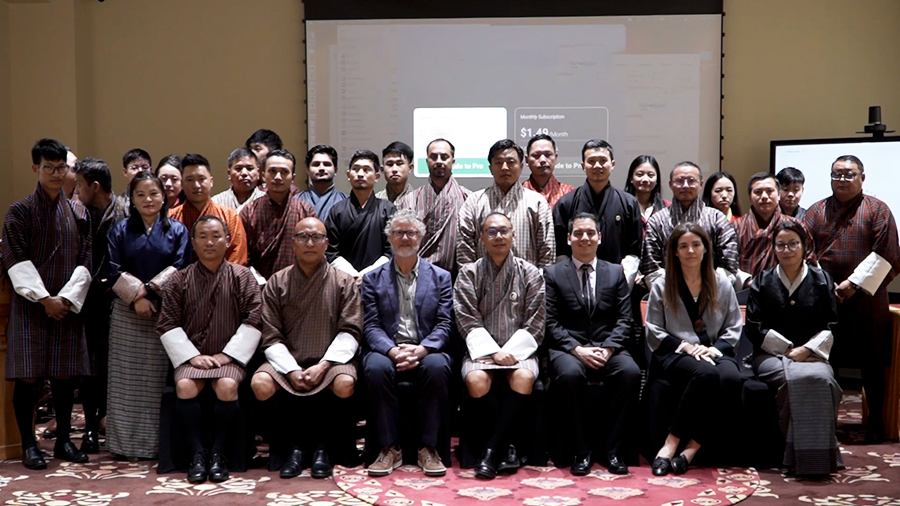
The country needs to amend its Mines and Minerals Act 1995 to align with the updated legal frameworks surrounding mining and quarrying. The Intergovernmental Forum on Mining, Minerals, Metals and Sustainable Development, IGF, recommended the amendment following a study. IGF is a member-driven organisation that brings together the mining sector, industries, and civil society to develop practical solutions and engage in dialogue on sustainable development in mining. Bhutan is one of its 85 member countries.
After becoming a member of IGF in 2018, the Department of Geology and Mines proposed and requested its collaboration and assistance to assess the country’s Mining Policy Framework.
IGF carried out a study and found that Bhutan needs to update and align its policies, Acts, and regulations to better address current and emerging challenges in the mining sector to ensure they align with international best practices.
Carlos Ortega, the environmental advisor of IGF said “There are many other regulations linked to the Act that have been updated more recently. But there are also instances that are tied by the Act and limited by the Act because the Act is old now. So, I believe and we have found that Bhutan has pretty robust regulatory framework in spite of being a very small mining country. We think it is an opportunity not only to improve some aspects of the Act that are outdated, but also to look forward and include more current regulatory aspect that can help the country develop their mining vision for the future.”
The assessment also commended Bhutan’s well conserved environment management practices.
Carlos Ortega added that “Just the fact that Bhutan already has a regulatory framework for mine closure with mine restoration guidelines and guidelines for the environment restoration bond is actually a strength because there are many countries, which are much bigger sectors that do not even have such a regulatory framework for mine closure.”
The Mines and Minerals Bill 2020 was tabled in the Parliament in 2020.
However, the National Assembly and the National Council could not reach a consensus on several amendments, particularly regarding the allocation of mining rights.
As a result, the Bill was deferred indefinitely and became a dead bill.
The Department of Geology and Mines has prioritised resubmitting the Mines and Minerals Bill to the Parliament considering the challenges that the department faces.
Phuntsho Namgyal, the director of the Department of Geology and Mines said “What we are doing at the department is, we are doing all the ground works, started drafting it and we are very soon going to do stakeholder consultation nationwide because this mining act actually requires participation and on boarding of so many stakeholders. And also beyond that, we also want to do something called LIA, legal impact assessment. So, when we change this law, is it going to have many impacts.”
Mining industry is one of the leading contributors to the country’s Gross Domestic Product.
Mining and quarrying sector contributed over Nu 4.5bn to the GDP in 2023.
In the 13th Five Year Plan, the sector is projected to grow by almost 12 per cent and contribute Nu 9bn to GDP.
Samten Dolkar
Edited by Phub Gyem










